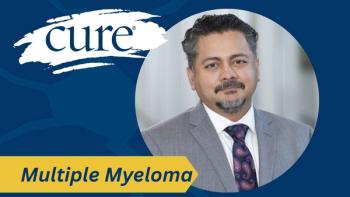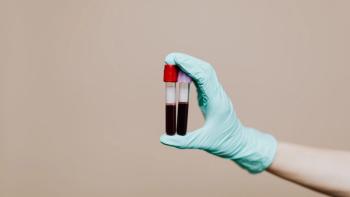
African American Caregivers Face a Greater Burden and Need Accessible Information and Support
When I recited my wedding vows to Eli in 1995, I never expected to be his caregiver. At the time, Eli was seemingly at the peak of good health and in the middle of his nine-year career as a professional linebacker.
As April marks
I learned this first hand when my husband Eli was diagnosed with multiple myeloma, a blood cancer, at 34 years old. When I recited my wedding vows to Eli in 1995, I never expected to be his caregiver. At the time, Eli was seemingly at the peak of good health and in the middle of his nine-year career as an professional linebacker. But just 10 years later, I was thrust into the caregiver role, vigilantly seeking out information, treatment and answers for my husband.
Learning about multiple myeloma treatment options is of particular importance for African Americans; they are less likely to receive the latest treatments and more likely to experience delays in getting treatment, all while being twice as likely to be diagnosed with the disease as white Americans. 1,2
Despite that statistic, I was the only African American at this year’s Annual Myeloma Survival School, which attracted dozens of people who wanted to learn how they could help their loved ones with this blood cancer live longer and better lives. I feel a disconnect remains between the multiple myeloma community and African American caregivers who need support.
Being a caregiver for a loved one with multiple myeloma is tough for anyone, but it’s particularly hard for African Americans.
I feel fortunate that when Eli was first diagnosed, I had the time to learn all I could about myeloma. I went to the website of organizations such as The
Not everyone in my community has the time or the resources to do the same. So, it is heartening to see the multiple myeloma community recognizing the challenges that African Americans caregivers face today and taking steps to find new avenues for providing support. I’m proud to be a supporter of the
At the Annual Myeloma Survival School, I learned that the LLS is working with the
In the end, if we hope to overcome the racial disparities in multiple myeloma, the community must provide easily accessible information and support to African American caregivers and patients alike. That’s why I’ll continue sharing
1. Abouzaid S, Parikh K, Zhouet Z, al. Disparities in treatment patterns and outcomes between Caucasian and African American patients with multiple myeloma (MM). J Clin Oncol. 2016; 34:abstr 8022.
2. National Cancer Institute. Cancer Stat Facts: Myeloma. 2017.
3. Martin MY, Sanders S, Griffin JM, et al. Racial Variation in the Cancer Caregiving Experience: A Multi-Site Study of Colorectal and Lung Cancer Caregivers. Cancer Nursing. 2012;35(4):249-256.



